SUNDAY PROFILE: Phil Eckford WWII veteran
Liina Flynn
15 August 2020, 7:21 PM

There’ some things that just aren’t talked about. When you’ve lived though a war and been in the navy Like Phil Eckford, sometimes, your lips are sealed about the “happenings” that took place, but memories are still strong.
Phil, a Goonellabah resident, is now 94 years old and one of the few living veterans who can still clearly remembers what it was like to live through World War 2.
He was born in Sydney in 1926, and after a long and colourful life of travel in the Navy, Phil moved to Lismore and started local sub-branches of the RSL especially for Navy veterans – because he saw there wasn’t anything for them.
In 1941, Phil Eckford was dead keen to join the Navy but at 15, he was too young. So, with the second world war underway and a strong desire to serve from having been in the sea cadets, he joined the mercantile (merchant) navy first - they took them younger.
A few years later, he followed in his father’s military footsteps and finally joined the Navy.
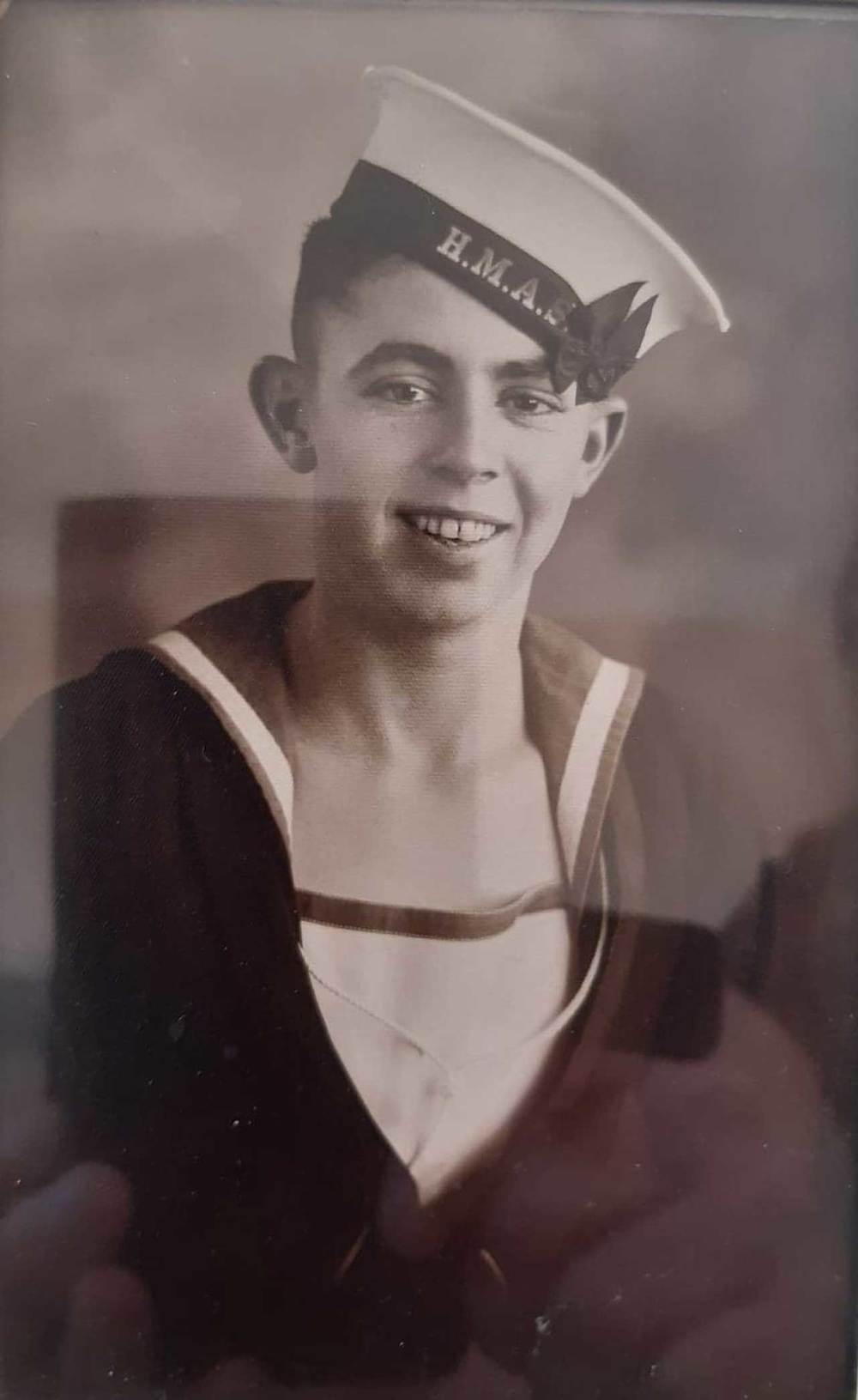
Phil as a young navy man.
Mecantile Marines
“One Saturday, I got dressed in uniform ready to join the navy. I was 15 and I was ready to go but I was too young,” he said.
“The fella at the recruiting bay said ‘do you really want to go to sea?’ I said ‘yes’ – so I went round the corner because customs house was calling people for the mecantile marines.
“I was at sea a few weeks later. I went away as a deck boy and it was long day at sea.
“I was up at 5am to give cook a hand and look after the officer’s cabins. Then I would relieve the helmsman where I learn to steer. In the afternoon, I’d work on deck, then back to the galley to help with supper. At night in the saloon, the officers would teach me about things on ships.”
“In the cadets, I was trained as a seahorn. When one of the ships I was on got pulled up by a patrol boat and questioned where we were bound for, I’d answer with the flags – it’s language and a forgotten art, because these days we have radio and communications technology.”
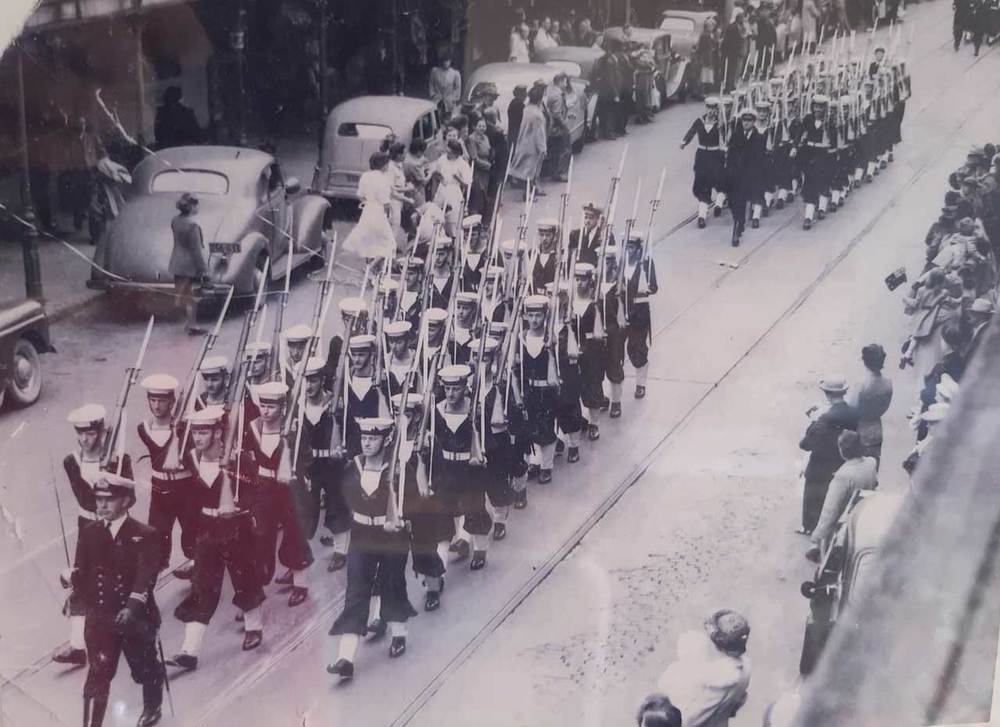
Phil on parade while he served on the Sydney.
Danger
For Phil, the years he spent in the merchant navy were fraught with danger because the ships were always at sea, full of cargo and vulnerable to attack.
“We were loaded up with dangerous cargoes and not able to defend ourselves,” Phil said.
“At least in the Navy you could fight back.
“In the merchant navy, if your ship was hit and went down, then your pay stopped – that was only if you survived it – a lot never did.
“You didn’t belong to anyone until you joined a different ship. When you went home port you had to wait till a ship was there for you.”
Phil had a chance to serve on many ships – including the NTS Nelson and Lavender Bay. His favourite was the Sydney.\
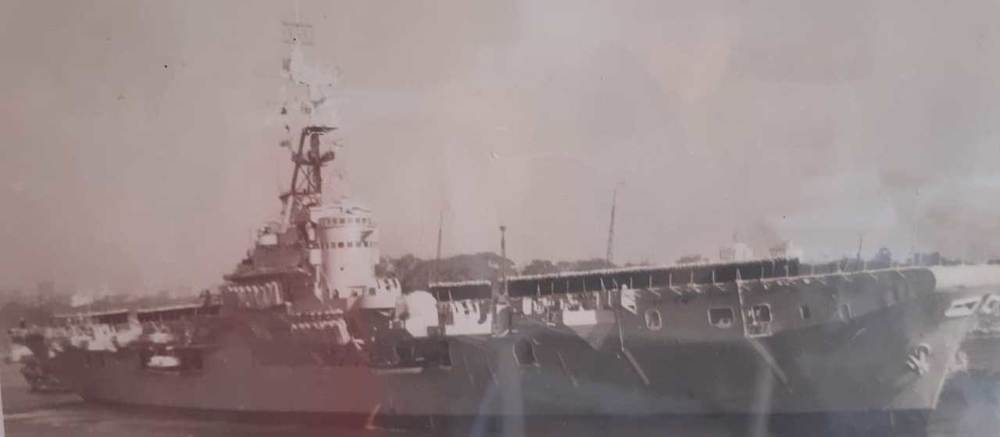
The Sydney.
Seaman’s ticket
“At sea, I got my ordinary seaman’s ticket. They asked me did I want to go on deck or below. I chose below,” he said.
“It wasn’t easy work - I was a coal firing stoker and often worked coastal areas like the Solomon Islands for a while during the war, moving munitions and food stores.
Damage control
“If we were in a dangerous situation, if I wasn’t on watch below, my station was at the fire pump at the bottom of the hull of the ship. If it got hit below the waterline, I was to switch the pump on and get out quick. I never had to do it – we were lucky.
“A few things happened though - I think it was an exercise. Once, we were supposed to have a submarine under us that wouldn’t come out – and every now and then, we would get a warning an aircraft was coming, but we were already underway.
“The merchant navy is a service and an industry but in wartime, there were surface actions between ships and submarines.
“Before Japanese submarines came with their torpedoes, we had German ships laying surface mines around the Australian and New Zealand coasts. They were washing up on beaches years later still.
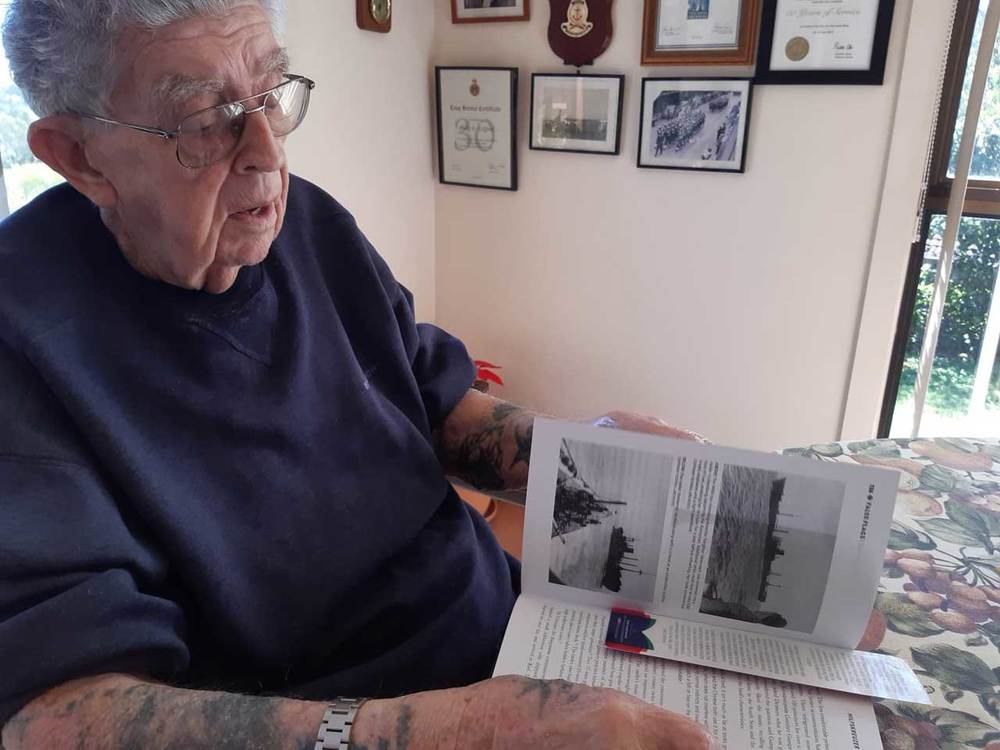
The Nimbin goes down
“The first ship to hit a mine off Newcastle was the Nimbin - a little steamer.
“We were always on the lookout for mines – then, they designed ships to have an inverted Y on the front, so that would hit the mine first and explode. Lots of ships went down.
“If people only knew just how close we went to being invaded in the war.
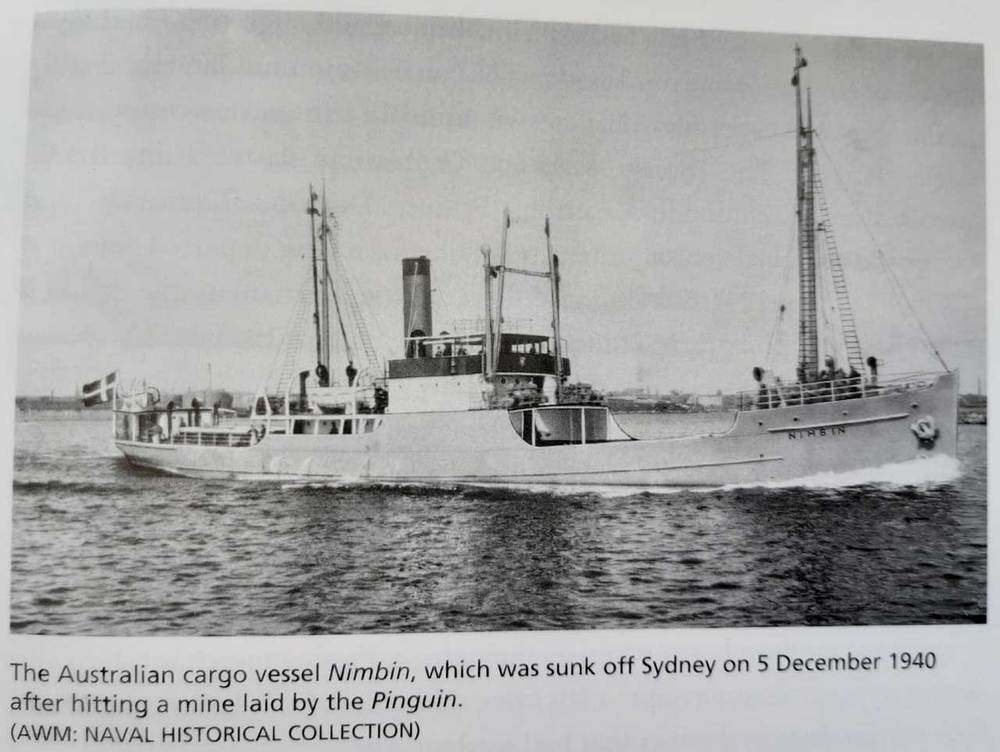
War is over
“I was in the Solomon islands when the skipper told us the war was over. A lot of the fellas were silent, but we were laughing and joking. Some bloke said what do we do now? There were some larrakins there.
“But when we were sailing overnight, we were still blacked out - just in case.
“In the war time, the ship’s bridge was covered and we could just see through a slit on the cover where they were steering. It was before sonar and a lot of those ships didn’t even have a radio operator.
Plum pudding
“A cook on one of the ships used to make a plum pudding. Some days, it was alright, but some days it was like a football and the fellas threw it around a bit. One day, it hit the deck head and broke up and piece of it went down into the engine room and clogged up the ship. A few days layer when the engineering officer put down his hand to clean the filter, pulled out some pudding.
“On deck, the cook was there and one fella said if it can clog the ship up, what’s it doing to a man’s guts? You should have seen the look on the cook’s face.
Navy and travel
“I was 22 or 23 when I joined the Navy. It was a different system, but I knew about discipline and I accepted it because it is just a code. You could be discharged for looking at an officer the wrong way.
“I got to travel a lot in the Navy. I’ve been around the world and I went everywhere except Russia.
“The Navy was generous with leave, as long as you behaved yourself. I liked visiting England, Japan and Canada best.
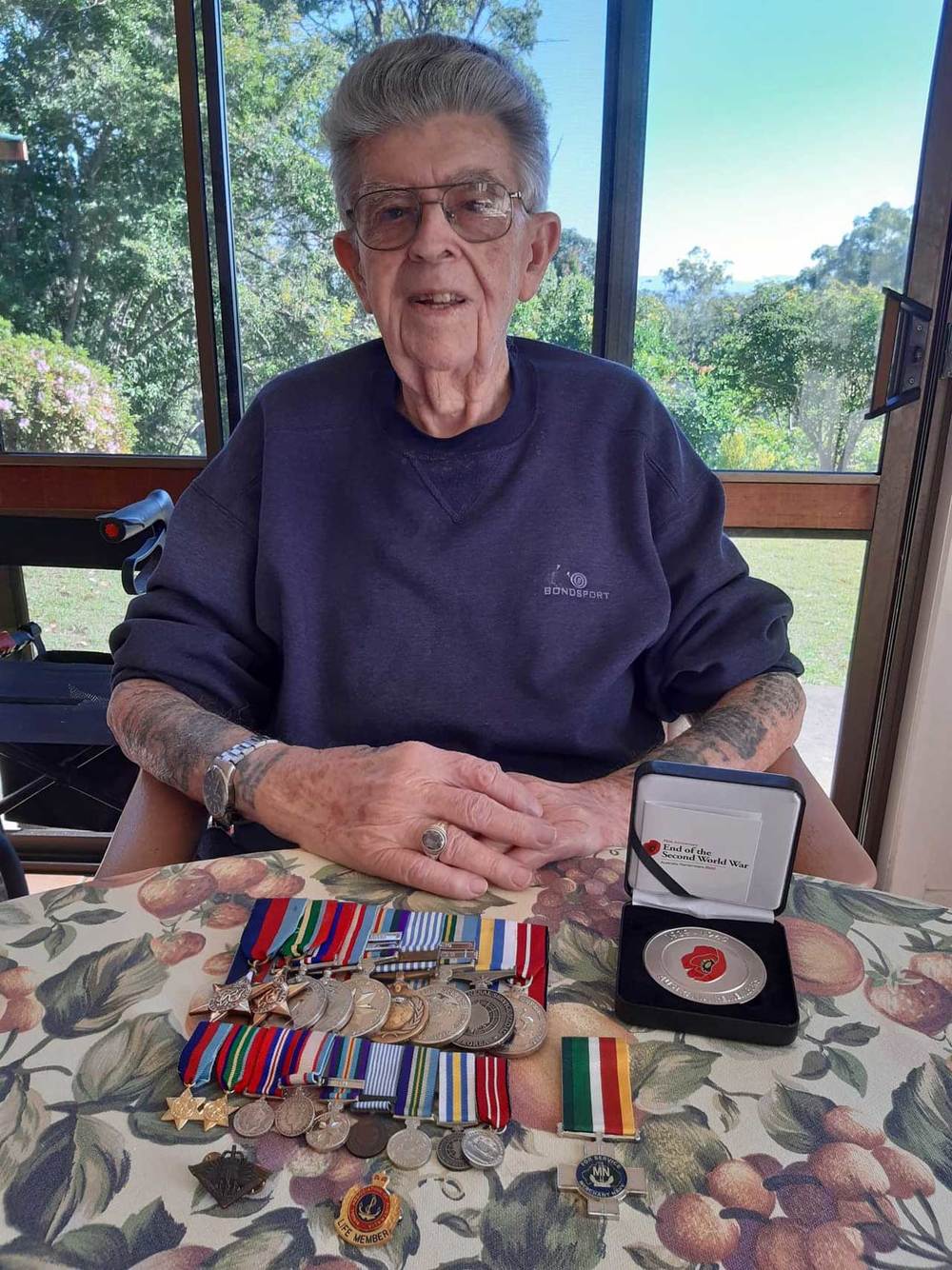
Coronation
“I was in London for Queen Elizabeth’s coronation in 1953. I was picked to be in the guard there. It was one of my favourite times – very special.
“I remember when she was going to be crowned, she drove past and looked straight at me. She was a beautiful women.
“As a navy guard, we lead the procession through London, then marched to the palace and took up our positions there. It was an experience.
“Eventually, I finished up in Korea, then the Malayan campaign. I was crewing ships like the Sydney, the Avengence, the Melboune, the Platypus, the Penguin and the Woomera.
“Korea was the forgotten war – some say there was a ‘truce in 53, others say it finished in ’56. We were still up around there.
Married
“In 1960, I left the navy. I had a wife at home – that’s what made me come out at the finish - I thought I’ve got a wife and two kids at home. We had three eventually – the eldest was a naval architect.
“When we met, I was home on leave one time and saw a girl and thought she not a bad looker. We’d known each other for quite some time.
“Now, we’ve been married for 70 years. She’s at Maranoa now being looked after because she had an accident, but she’ll come home again when she’s recovered.
Jobs on land
“I had a few jobs on land. I’d learned a lot about naval stores and engineering in the Navy.
“As a stoker mechanic, I’d mainly worked on boilers – welding, keeping the steam and auxiliary machinery working. Sometimes I’d worked on the flight deck on machinery up there.
Lismore TAFE
“When the family moved up to Lismore, I got a job at TAFE as a storeman.
“I wasn’t a tradesman but had experience in engine rooms.
“It’s a funny thing, but when I first started at the TAFE, there was a lathe there and I had a funny feeling about it – I remembered it was off the Sydney (the ship) and the other big one was too.
“We had a big workshop on the Sydney – and I found out they had been designated to two tech colleges.
“I made a lots of friends there and they never forgot it - I was the ‘Navy’.
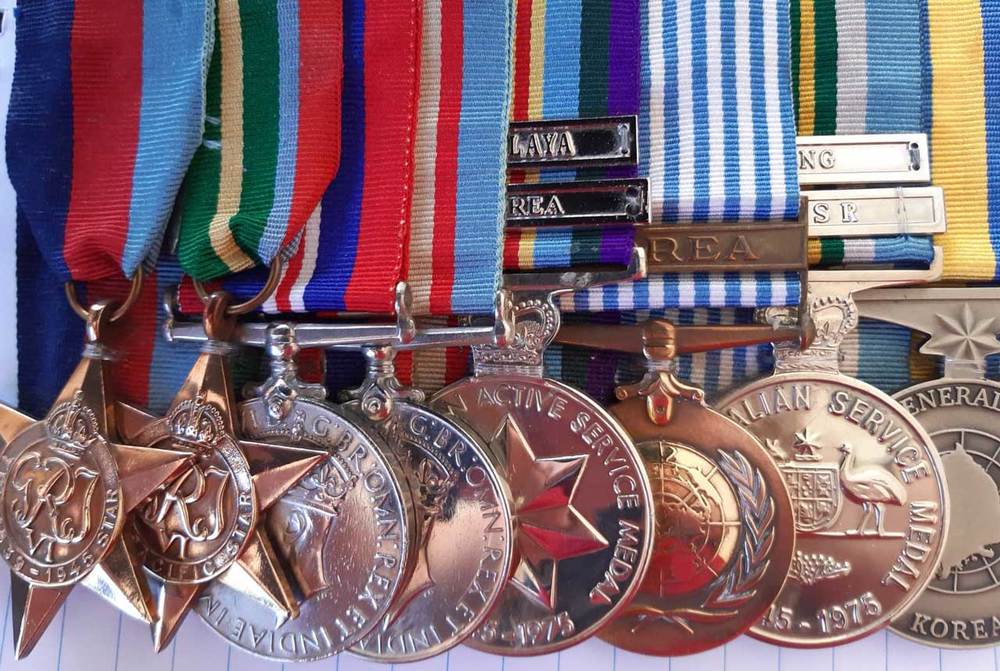
Some of Phil's medals.
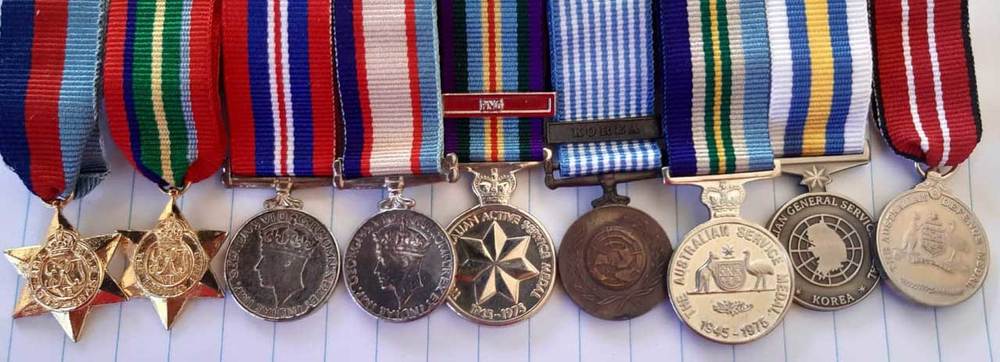
Lismore RSL
When Phil came to Lismore, he was in the Retired Servicemen’s League (RSL) and transferred to the Lismore RSL sub branch. He realised there was nothing here for the ex-navy veterans.
So, he formed new sub-branches of the naval association for them in Lismore, Ballina, Mullumbimby and Tweed Heads.
Then he started the naval cadets, out of the museum Ballina and became the vice president of ANZAC House.
“I had a busy time and I enjoyed every bit of it,” he said.
“I was also in Legacy and a JP for 50 years.
“I’m a life member of the naval association and have been for 50 years.
Medals
“I was up for an award, but an officer at ANZAC House pulled officer’s privilege and I didn’t get it. It did hurt, but when Kevin Hogan came to visit this week and gave me the medal to commemorate the end of the Second World war, I was stoked.”
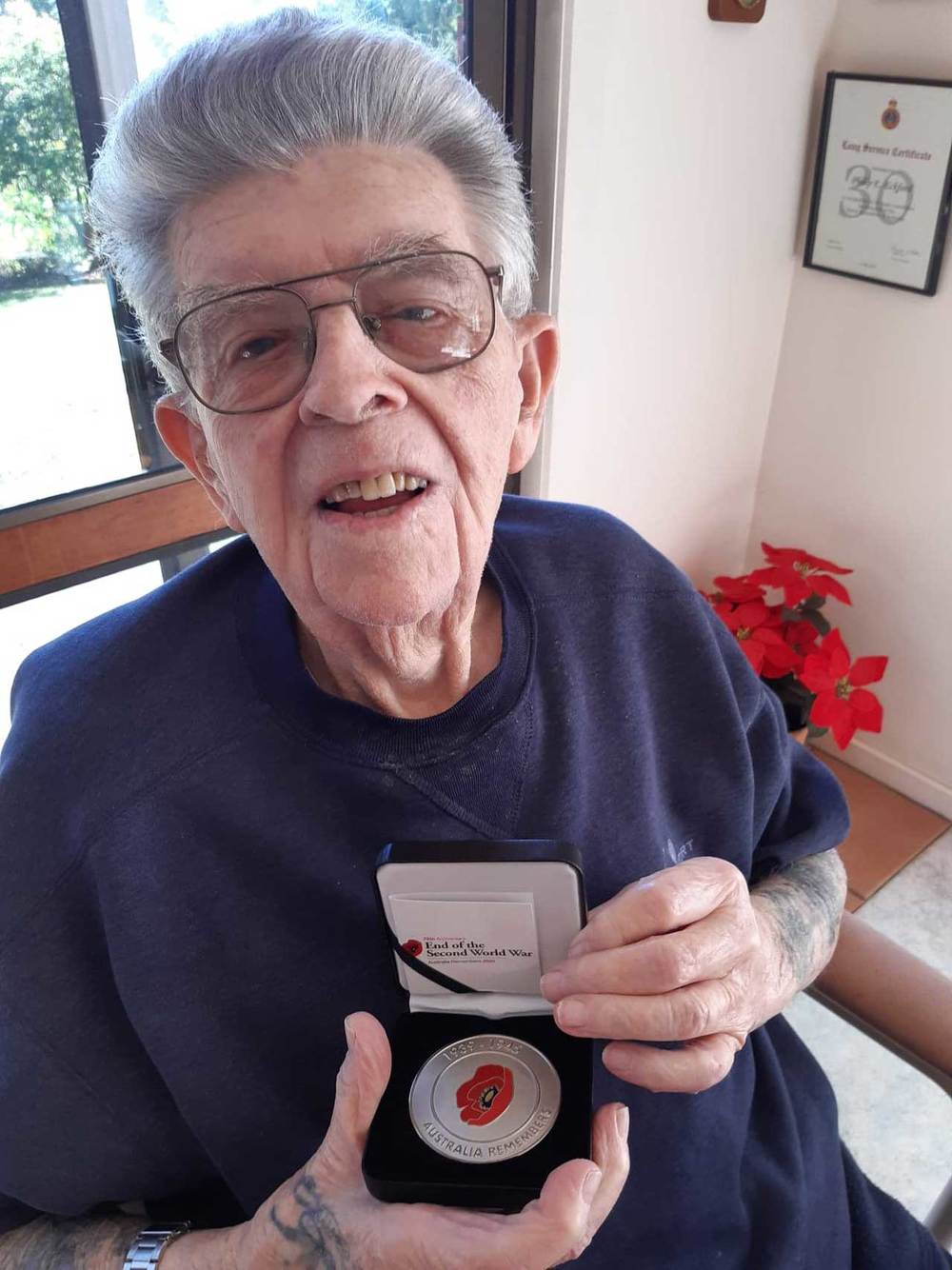
Phil has lots of active service medals, including those sent to him for serving in Korea, PNG, and Malaya. He is still going strong and looks forward to many years yet.





